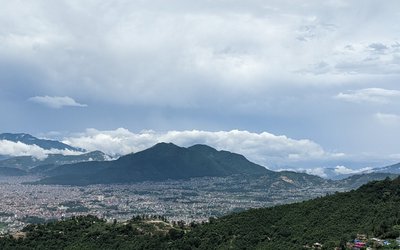We the three donors - Switzerland, the United Kingdom and Denmark – have a history of supporting efforts to enhance governance in Nepal. Many of you here today have worked as partners in initiatives supported by the Enabling State Program or ESP, the Rights, Democracy and Inclusion Fund or RDIF, the Human Rights and Good Governance Unit or Danida-HUGOU and projects supported by the Swiss Agency for Development Cooperation (SDC).
In many respects the Governance Facility we are launching will build on work carried out through these agencies but in a more coordinated, harmonized and focused way. We will be building on the successes of past programs, and we will learn from past mistakes. With the new Facility we have come together to demonstrate our strong and continuous commitment to democratic governance by pooling our resources in order to make coordinated support available for supporting the process of bringing meaningful and accountable change.
Human Rights and Good Governance are about rights – transparency and accountability. In close collaboration with you - government institutions and civil society -we will work hard to deliver results.
Allow me briefly to elaborate a bit more on why we decided to come together and establish the Governance Facility.
We want to foster a positive change in the areas covered by the Governance Facility through the strengthening of Nepali public institutions and civil society organizations, enabling them to improve their capacity and to implement the projects they submit for financial support. We will support the nurturing of every good idea, and work to build strong partnerships with national organizations, that deliver results. We will also support the building of capacities of our partners to ensure that when we go away we leave behind strong, sustainable and professional Nepali institutions. In specific cases when initiatives are considered in areas where there is not sufficient capacity among Nepali actors, the GF can also support proposals made by international civil society organizations; in such cases, a strong collaboration with Nepali actors will be sought so that eventually the sustainability and scaling up can be ensured by national institutions.
Human rights and Good governance have many faces.
To the poor single mother who does not have to pay a bribe to obtain services from the State - transparency and accountability will mean a greater sense of security and belonging.
To the Dalit - who will no longer feel marginalized and voiceless - good governance is about providing an equal and fair opportunity to compete and participate and to be heard.
To someone proud of his or her unique identity, human rights and good governance is about being respected for what he or she is irrespective of class, caste, ethnicity, religion or sexual orientation.
Simply, the big word, ‘governance’, is all about doing the right things and doing these things right. The “how” can in many cases be as important and relevant as the “what” from a governance perspective. We want to start with the right things no matter how small, and make incremental changes paving the way for bigger and more substantial impact. We will continuously ask ourselves ‘what is the right thing to do’ while evaluating and responding to proposals for support. We will also do our level best to ensure that things are done right, both at the GF Secretariat level and at the level of the partners of the GF.
We want to see state institutions, civil society, the private sector and social organizations complement and support one another. We want to see them be the drivers of the changes we hope to deliver. We want to strengthen and institutionalize democratic governance in Nepal.
Looking to our countries United Kingdom, Switzerland and Denmark – different in size and with different history - but united in our aim to strengthen and improve our human rights and governance record. We did not get to where we are overnight and we still have to improve. In some respects our strength has been that we have managed to address the tyranny of neglect of problems paving the way for changes not least because state institutions, CSOs and the private sector decided to work in unison to attain the shared goal of bringing about change – transparency and accountability.
A GF secretariat in Lazimpat will function as the Mission’s H.Q. for providing and coordinating our support. The Board where government, civil society and donors are represented will provide guidance to the secretariat. The Board is made up of the Heads of Missions of Denmark, Switzerland and DFID, the Vice Chair of the National Planning Commission Prof. Dr. Govind Raj Pokharel, President of the NGO Federation Mrs. SharmilaKarki, and former member of National Women’s Commission Mrs. Amuda Shrestha.
A strong, inclusive, peaceful and democratic Nepal is the aspiration of every Nepali citizen – young or old – men and women. We now invite you to become innovative and committed actors of this initiative, contributing with your good ideas to the realization of these aspirations.
Ms. Kirsten Geelan is an ambassador of Denmark to Nepal. Excerpts of the statement delivered at the formal launch of the Governance Facility - a multi donor mechanism - funded by Denmark Switzerland and the United Kingdom.
- We Want To Foster A Positive Change
- Jan 16, 2015













